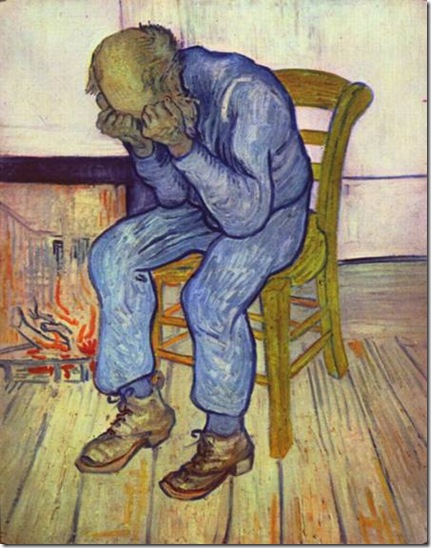I’ve hesitated for many months writing this post, because I know that my experience is not the only one out there, and I know that talking about depression as a helpful thing might seem like I am making light of many other people’s horrific experiences with depression.
But still, I have my experience, and I’ve been wanting to write about it, even though it (and my resulting thinking on depression) is perhaps a bit radically unconventional. Please don’t read this as my thinking I’ve got the final word on the subject. I don’t. But I do have (more than a few) words on the subject, based on my personal experiences and observations and readings, and they’re just getting more and more muddled sitting inside my own head. Hence, the attempt (again) at trying to sort them out by putting them in writing.
(1) I have frequently seen depression compared to other illnesses, but most of those comparisons tend to fall short for me. In my experience, I have found depression to be most analogous to physical pain. And just as I think about pain as my friend, not my foe, so I think of depression.
I believe that depression is our built in warning system that something is going wrong. If I burned my hand and could take a pill that totally numbed the pain but, otherwise, allowed me to function normally, my hand would not only not heal, but would likely deteriorate further. Pain is what screams out to us “Stop” when we are damaging something in our bodies. Pain also serves as a boundary and guideline throughout the healing process.
Now, I’m aware that sometimes the pain system malfunctions. And I believe the depression-pain system also can malfunction. I’m not ignoring that possibility. But I do believe we err in primarily thinking of depression as a malfunction rather than a healthily functioning pain-warning and healing-guiding system.
(2) I believe that depression is not only a warning signal similar to pain, but also a built-in recovery system. Calling things like the sadness, lethargy, brain fog, etc., “symptoms” of depression is accurate from one angle. But from another, it misses the possibility that those things, by nature, force us to slow down, or even stop.
I hear people talk about how paralyzing depression is, how little they can accomplish, and I have experienced those very things myself. But, at some point, I began to realize that my body was beginning to restore itself as I gave in to those “problems”. I’ve heard about doctors inducing a coma in burn victims which makes the body almost completely shut down, allowing all of the patient’s strength to go into the healing process. The coma also prevents the person from damaging their tissue further by doing anything.
I have, at times, experienced depression as something near to a walking coma. But, out of that, I found that what the lethargy did by preventing me from doing all the essential things I thought I had to do, was allow healing and rebuilding to happen.
There is, of course, a complication with giving in to the “problems” of depression and receiving them as gifts, allowing me to rebuild. And that is that depression is chemically rather spiraling. The brain chemicals of depression do seem to be self-repeating and self-defeating.
I’ve addressed this by being rather intentional in my depression. I let myself shut down as much as I can (which is almost always I little more than I think I should). And then I build in a “snap out of it” feature into the plan. Obviously, one cannot just snap out of depression, but I do make use of some of the things that others have found helpful when they are depressed. I try to eat better, exercise a tiny bit, listen to a funny radio program (CarTalk is my anti-depressant of choice, if you must know), visit with a friend.
I make myself do those things, even though I don’t feel like it. Now that’s not a novel way of dealing with depression, but the difference is that I only make myself do those things AFTER I’ve intentionally taken the space to be as depressed as my body is screaming it needs to be.
For me, this means that I will often take an entire Saturday (and sometimes part of Sunday, too) to be therapeutically depressed. And I really do see the payoffs in feeling deeply restored afterwards. I’m hardly ever as happy as I am when I come off of letting myself be as desperately sad as I feel the need to be. And I also find that I experience a peak of restored energy after letting myself be as physically lethargic as my depression is screaming out for me to be, for a period of time.
I don’t actually like being depressed. It feels miserable and awful, just like being in physical pain does. But I’ve found that “giving in” to the pain, and feeling it, as is, is, for me, one of the most effective ways of walking through the pain towards healing and rebuilding my strength.



